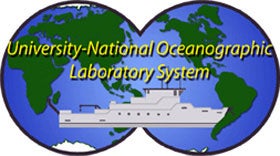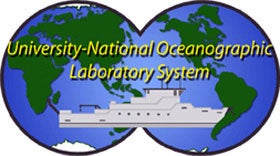 NARRAGANSETT, R.I. – June 29, 2009 – The University of Rhode Island’s Graduate School of Oceanography has been awarded a 5-year grant funded at nearly $1 million per year to host the University-National Oceanographic Laboratory System (UNOLS), which coordinates and oversees the scheduling and research on the nation’s 22 academic research ships.
NARRAGANSETT, R.I. – June 29, 2009 – The University of Rhode Island’s Graduate School of Oceanography has been awarded a 5-year grant funded at nearly $1 million per year to host the University-National Oceanographic Laboratory System (UNOLS), which coordinates and oversees the scheduling and research on the nation’s 22 academic research ships.
UNOLS is a consortium of 61 academic institutions and national laboratories involved in oceanographic research. It will be led by Executive Secretary Jonathan Alberts, who has many years of experience in marine operations and ship scheduling.
“We’re thrilled to have been selected for this award,” said Dennis Nixon, URI professor of marine affairs who has served as legal advisor to UNOLS for the last 20 years. “With UNOLS based here in the same building as the Inner Space Center, we are now the hub of oceanographic operations for the whole country. We now have the communications ability to know where every U.S. research vessel is around the globe and to have our scientists participate in the science without having to be on the ship.”
According to Annette DeSilva, assistant executive secretary for UNOLS, the equitable and efficient scheduling of ship time is one of the primary responsibilities of the grant holder.
“We make sure that federally-funded scientists have access to ship time,” DeSilva said. “We’re sort of like a dating service. We match scientists with the ship that has the right facilities and that is going to the right part of the world at the right time of year.
“We also make sure that the fleet of the future meets the needs of the scientists of the future,” she added. “So we assess the needs for new vessels and make plans for fleet renewal.”
In Nixon’s role as risk manager and legal advisor, he receives several calls a week for guidance on addressing legal problems and insurance issues related to ship operations.
“Three years ago one of the UNOLS ships was attacked by pirates, and the crew barely managed to escape machine gun fire and rocket propelled grenades. Piracy is a growing problem,” he said. “Climate change is another big issue for us. The melting Arctic ice has expanded interests in oil and gas exploration, raising questions about the international law of the sea and who has the rights to be in certain waters.”
In his UNOLS role, Nixon is the U.S. representative to the International Research Ship Operators’ Meeting, for which he recently wrote an environmental code of conduct for the operation of research vessels.
“It may be the thing I’m most proud of, because I got to write an international treaty,” he said with excitement. “It has become part of customary international law for the responsible care of the ocean environment. The treaty sets the tone for ship’s operations around the globe.”
The grant to manage the UNOLS fleet is typically transferred between East Coast and West Coast members every 9-10 years through a competitive process. URI first won the grant in 1991. It was transferred to the Moss Landing Marine Labs, part of the California State University System, in 2000.
Funding for UNOLS is provided by six government agencies with interests in oceanographic research — the National Science Foundation, Office of Naval Research, National Oceanic and Atmospheric Administration, Minerals Management Service, U.S. Geological Survey, and U.S. Coast Guard.
The ships in the UNOLS fleet range in size from the 66-foot R/V Clifford A. Barnes, which is based at the University of Washington, to the 279-foot R/V Melville, based at the Scripps Institution of Oceanography at the University of California, San Diego. URI’s R/V Endeavor, measuring 184-feet and based at the Narragansett Bay Campus, is also part of the fleet.
“The UNOLS grant puts URI in a great position, and I’m excited for what is to come in the next five or 10 years,” Nixon said.

